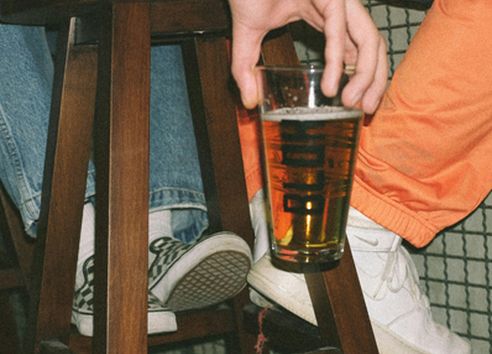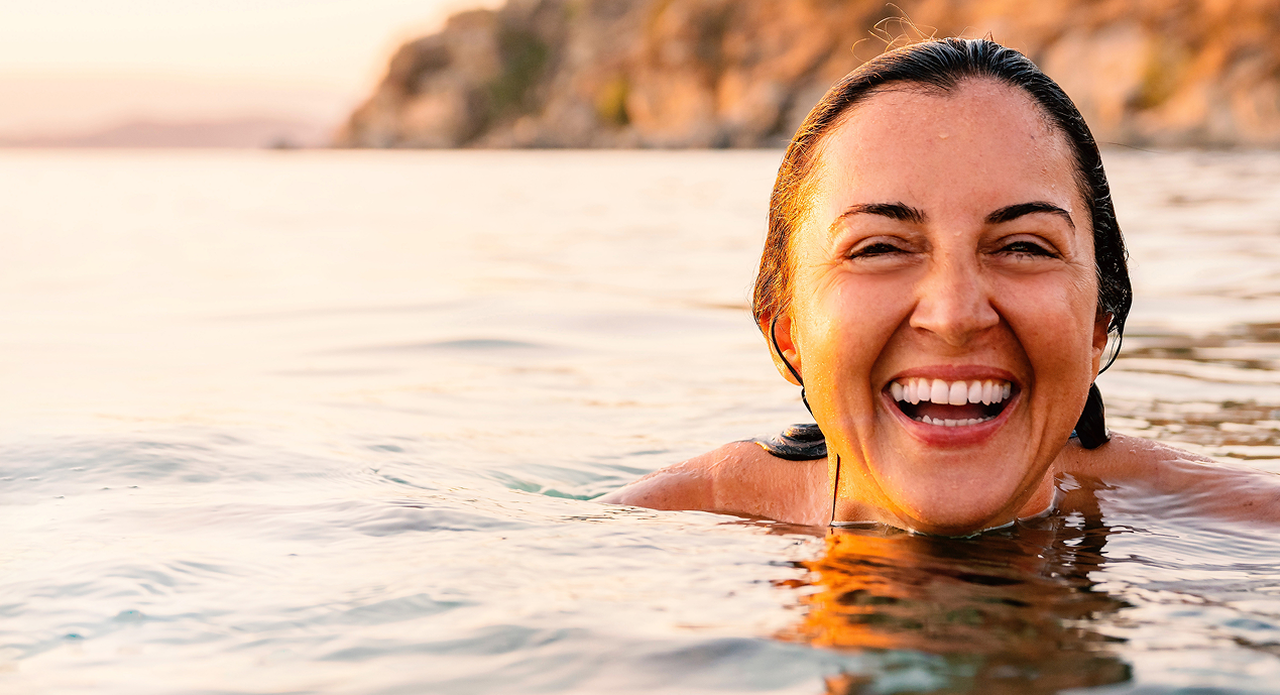“People think I’m boring if I don’t drink”: Breast Cancer UK Poll reveals the social hangups that could be harming our health
According to a new poll carried out by Breast Cancer UK in line with Breast Cancer Awareness Month, Brits feel pressured to drink on average once a week.


- Written by Breast Cancer UK
- Posted: 25 November 2025
- 3 min read
Despite an estimated 8% of female breast cancer cases in the UK being linked to alcohol consumption, the poll revealed that the nation’s resolution to cut down is constantly being challenged by external factors including feelings of social obligation, shyness and shame.
Breast Cancer UK found that although a quarter of UK adults would rarely choose to drink alcohol on their own, they find themselves regularly under pressure during social situations. The biggest offenders were shown to be nights out at clubs and bars (37%), Christmas events (32%), birthday gatherings (32%) and special occasions (31%). Despite a shift towards sober curiosity in the younger generation, shots and toasts – which are still synonymous with celebration –are frequently breaking down our defences. More than this, it’s considered polite to drink at a party: 1 in 11 Brits feel rude saying no to a drink they don’t even want.
But beyond being part of social etiquette, alcohol’s ability to numb our inhibitions makes it a common social crutch. Breast Cancer UK’s poll revealed that a staggering 29% of the British public believe they need alcohol to get on the dancefloor, and an additional one in four agree drinking gives them confidence to meet new people - with 16% admitting to having used it as a form of icebreaker to navigate awkward first meetings. These figures highlight how many are leaning on alcohol not for pleasure but as a source of Dutch courage, or a way to overcome social anxiety whilst bypassing effective long-term treatment.
Perhaps the most concerning of Breast Cancer UK’s findings is the UK’s fear of being judged for not drinking. In fact, a quarter of 25–34-year-olds are embarrassed saying no to alcohol, with a whopping 28% of Brits of the opinion that people will find them boring if they don’t drink. In this sense, it’s not about having fun but being perceived as fun by those around us. People are even feeling the need to hide their sobriety out of shame: according to the survey, one in ten Brits would rather lie about being on medication than admit they don’t want to drink, while 9% have pretended to be drinking something alcoholic to avoid questions.
So how could these social hangups be harming us? According to Dr Hannah Moody, Director of Research and Engagement at Breast Cancer UK, our desire to fit in may be hampering efforts to create healthier habits: “Studies show that alcohol increases our breast cancer risk and can increase levels of circulating hormones including oestrogen. The more we drink, the more this risk increases. But despite the serious health implications, our survey has shown that peer pressure may be stopping some of us from taking preventative action.”
Another part of the problem is a gap in knowledge, as highlighted by World Cancer Research Fund’s (WCRF) recent revelation that 1 in 14 Brits are completely unaware of the link between alcohol and cancer. Nonetheless, Breast Cancer UK CEO Thalie Martini remains positive: “The good news is that we reduce our risk the moment we cut down, meaning that with the right education, support and tools, we can empower ourselves and those around us with immediate effect.”
This is why this Breast Cancer Awareness Month, Breast Cancer UK - alongside ambassador and mindful drinking expert Camille Vidal - are providing tips on how to have fun without alcohol, as well as proving just how rewarding cutting down can be with a series of alcohol-free supper clubs in collaboration with top London chefs.
Camille champions the charity’s campaign, stressing the crucial role of accessible resources and a supportive community when it comes to tackling peer pressure: ““Our Full Supper Club series creates a space where women can enjoy themselves without alcohol, feel supported rather than judged, and celebrate taking control of their health and happiness. And for anyone who prefers to start their prevention journey at home, we’ve put together free recipes to share with friends, so you can enjoy connection, flavour and fun - all without the alcohol.”
Taking the pressure off the individual also requires putting more pressure on those in power, which is why Breast Cancer UK are continuing their call for the Government to provide policies that go beyond raising awareness and give people the ability and support needed to make informed choices when it comes to alcohol consumption. Earlier this year the charity joined WCRF in demanding policy reforms including mandatory health warning on labels, marketing restrictions and minimum unit pricing. The need for public health intervention is clear, and this begins with making alcohol a less enticing option.

Please select a campaign to connect this plugin with.